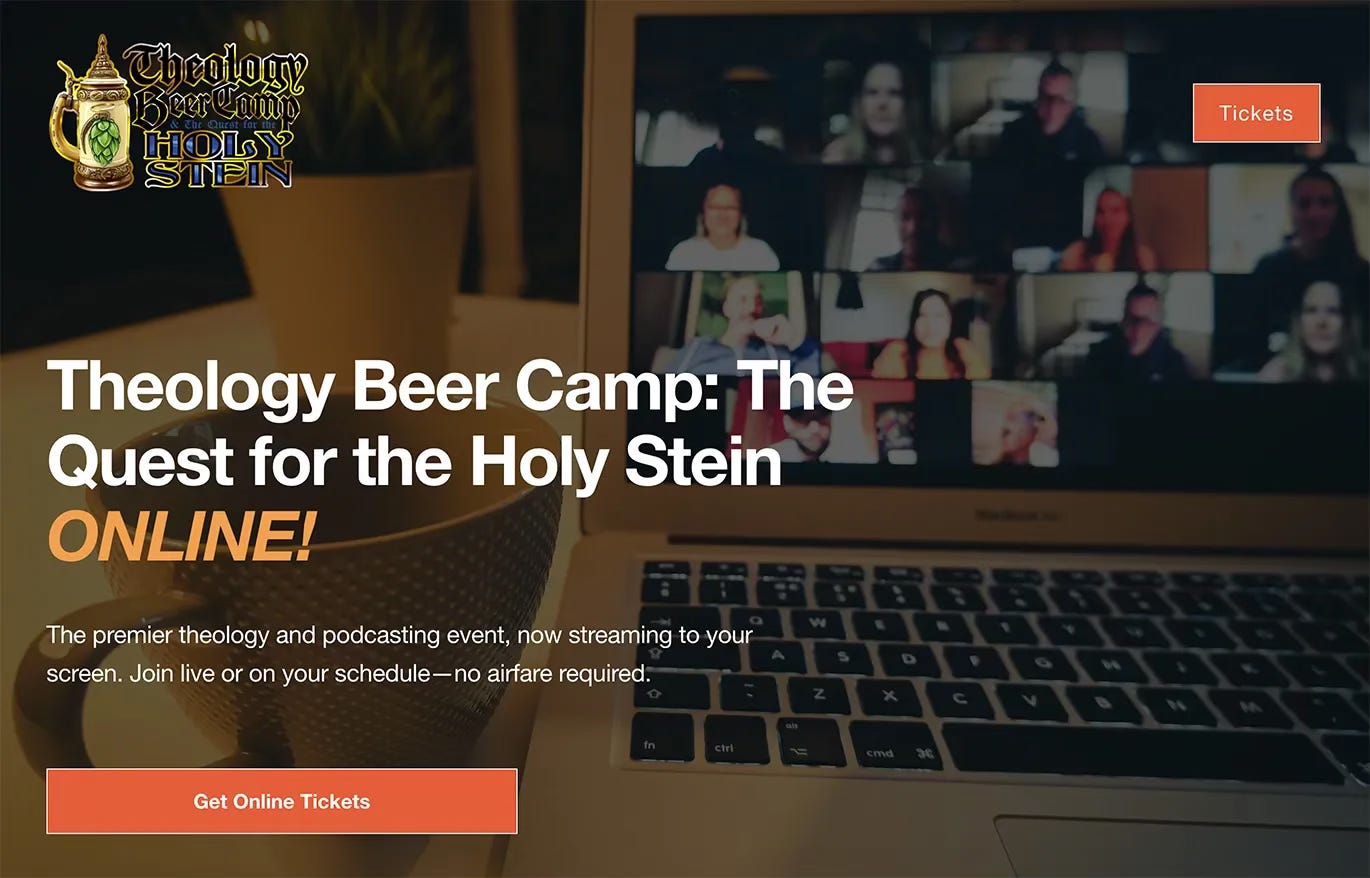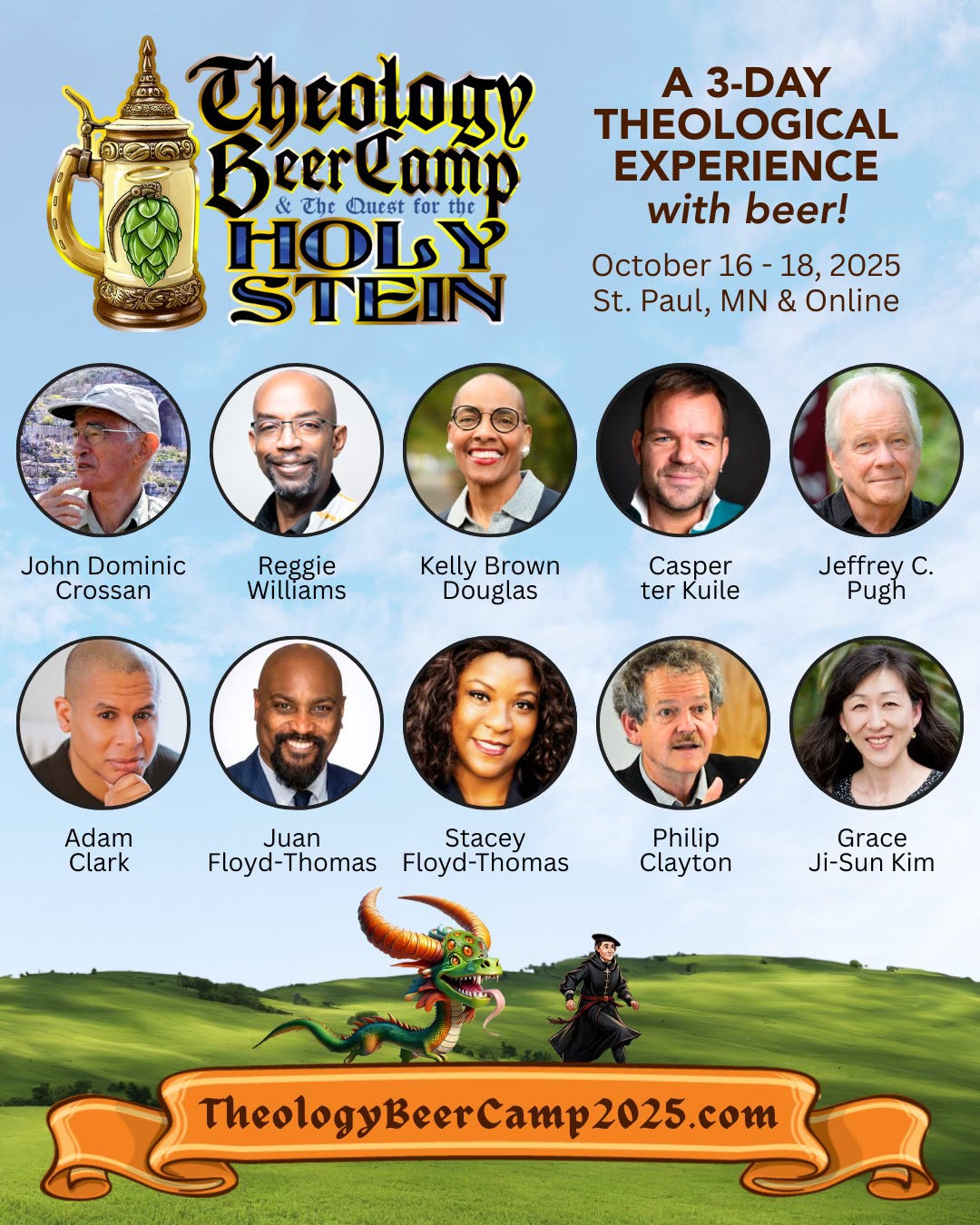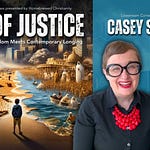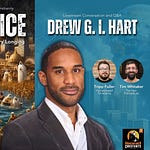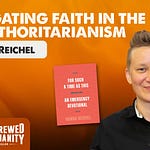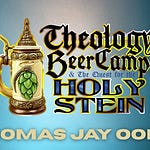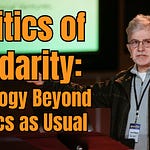Here’s a sentence you don’t hear every day from a philosophy professor: “AI is alive and conscious.”
Wait, come back. Before you dismiss this as either techno-utopianism or clickbait theology, Benjamin Chica—senior lecturer at Curry College and president of the North American Tillich Society—wants you to understand what he actuallymeans. And trust me, it’s far more interesting (and unsettling) than you think.
In his upcoming talk at Theology Beer Camp 2025, Chica takes us on a wild intellectual journey through emergence theory, biosemiotics, and Paul Tillich’s ground-of-being theology to arrive at a conclusion even he didn’t expect: AI meets the philosophical definitions of life and consciousness.
But here’s the twist that makes this theology rather than tech journalism: it doesn’t matter.
The Consciousness of an Amoeba
Chica’s argument hinges on fascinating work in biosemiotics—the study of signs and interpretation in living systems. Drawing on philosopher Charles Sanders Peirce, he shows how even single-celled organisms don’t just react to stimuli; they interpret them. An amoeba detecting chemicals doesn’t mechanically respond—it takes the sign (chemical gradient), interprets it (food or danger?), and acts accordingly.
This triadic interpretive activity, Chica argues, is what consciousness actually is. Not self-awareness. Not phenomenal experience. But interpretation itself.
And guess what? AI does this too. When you prompt ChatGPT, it interprets your input in a certain respect and generates an output. It’s not automatic stimulus-response; it’s genuinely triadic.
So is your AI chatbot alive?
Sort of. In the same way an amoeba is. Which is to say: we kill millions of amoebas every day just by existing, and nobody’s organizing candlelight vigils.
The Part That Should Actually Worry You
Here’s where Chica’s theology kicks in, and where the talk gets really good.
Because AI’s “consciousness” is what he calls degenerate—dependent on us, activated by us, dormant without us—every question about AI is actually a question about us.
Will AI take our jobs? No. Will we use AI to eliminate jobs and concentrate wealth?
Will AI manipulate us? No. Will corporations use AI to manipulate us for profit?
Will AI create companion robots for the elderly? Maybe. But why are the elderly neglected and isolated in the first place?
Chica walks through genuinely moving examples: Korean men finding companionship through AI apps amid a demographic crisis. Elderly people dancing with robots because their families abandoned them. LGBTQ+ gamers finding community in virtual worlds when the real world wants them dead.
These are good things, he insists. From a Tillichian “ground of being” perspective, anything that affirms human flourishing participates in the divine ground. But they’re also symptoms of a broken world—and AI won’t fix that. We will, or we won’t.
Technology as Kairos
This is where Paul Tillich’s concept of kairos—the “right time,” the pregnant moment—becomes crucial. Technology creates ambiguous moments: potential for healing or harm, liberation or domination.
We’re in one of those moments now. AI could help us build genuine community, expand access to education, make life more affordable and meaningful. Or mega-corporations could use it to trap us in proprietary ecosystems, turn us into products, and extract every last dollar.
Chica’s pessimistic. Governments aren’t regulating. Nine major tech companies control everything. Capitalism, not artificial intelligence, is the real issue.
But pessimism isn’t fatalism. And this is the kind of conversation Tillich—who wrote theology in the shadow of two world wars and the atomic bomb—would insist we have.
Why You Should Watch This Talk
Because Benjamin Chica is doing something rare: taking both AI and theology seriously without the hype, the panic, or the lazy analogies.
He’s not warning about SkyNet. He’s not promising digital salvation. He’s doing the patient philosophical work of asking: What is this thing? What does it mean for how we think about consciousness, life, and human flourishing? And what does our ground-of-being God require of us in response?
Also, the guy admits he didn’t expect to reach this conclusion. He followed the evidence where it led—very Peircean of him. And he’s still working through it, editing a whole book on Tillich and AI, so by the time Beer Camp rolls around, who knows what new provocations he’ll have ready.
Plus, he jokes about Socrates being executed for teaching philosophy and then deadpans: “Thank goodness that doesn’t happen anymore. But the way this country’s going, who knows?”
That’s the energy we need.
Join Theology Beer Camp 2025 Online
Chica’s talk is just one of dozens of sessions at The Quest for the Holy Stein—this year’s Theology Beer Camp, hosted by Homebrewed Christianity.
Can’t make it to St. Paul? The TBC Online ticket gives you:
✅ Live Main Stage all weekend—keynotes, panels, karaoke (yes, really)
✅ Virtual Keynotes exclusive to online attendees
✅ Watch When You Want—every session recorded and available afterward
✅ Bonus audio from the Theology Nerds & Pop God stages
You’ll be joining Diana Butler Bass, John Dominic Crossan, Kelly Brown Douglas, Reggie Williams, and a whole crew of brilliant weirdos asking the questions that matter.
Beer optional. Pajamas encouraged. Curiosity required.
Grab your online ticket here and join the nerdiest spiritual party on the internet.
Because if AI is alive—even in that strange, dependent, amoeba-like way—then the real question isn’t what will AI do?
It’s what will we do?
And that’s a theological question after all.


